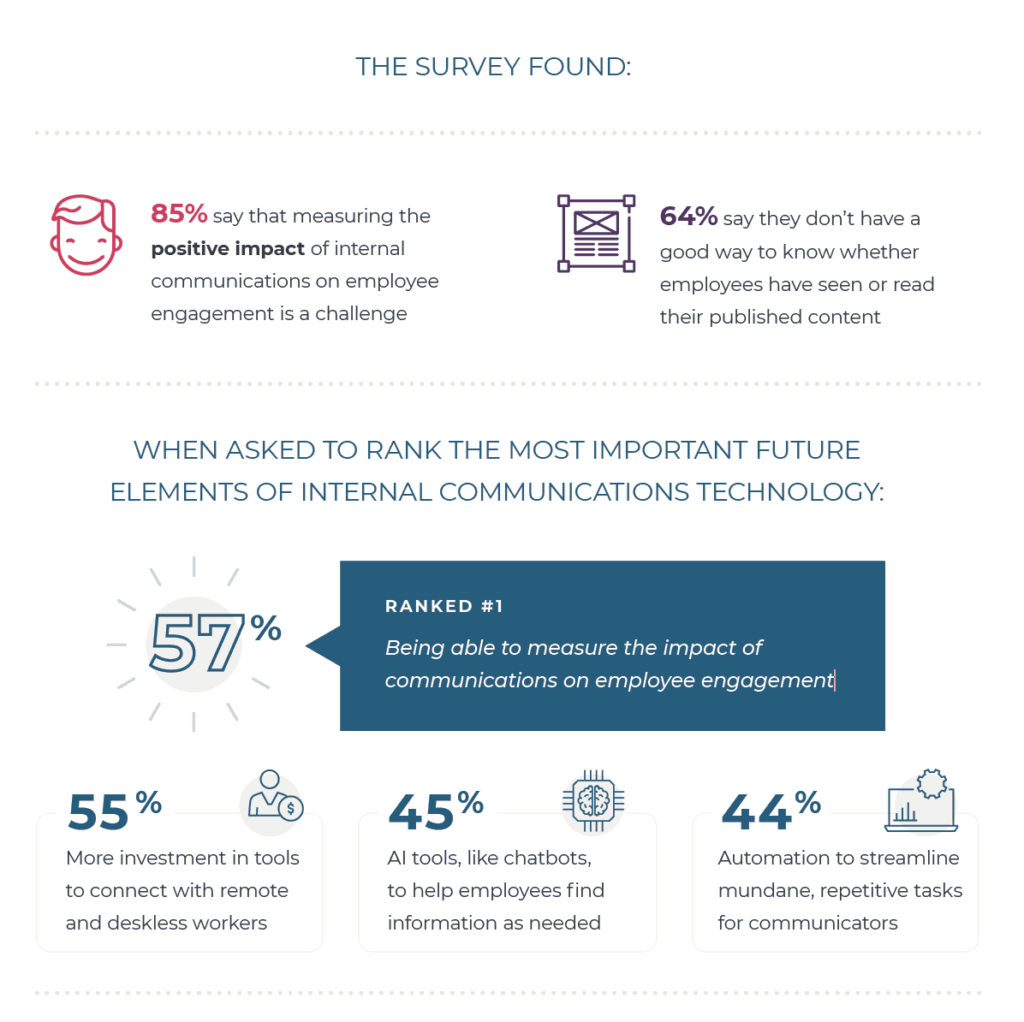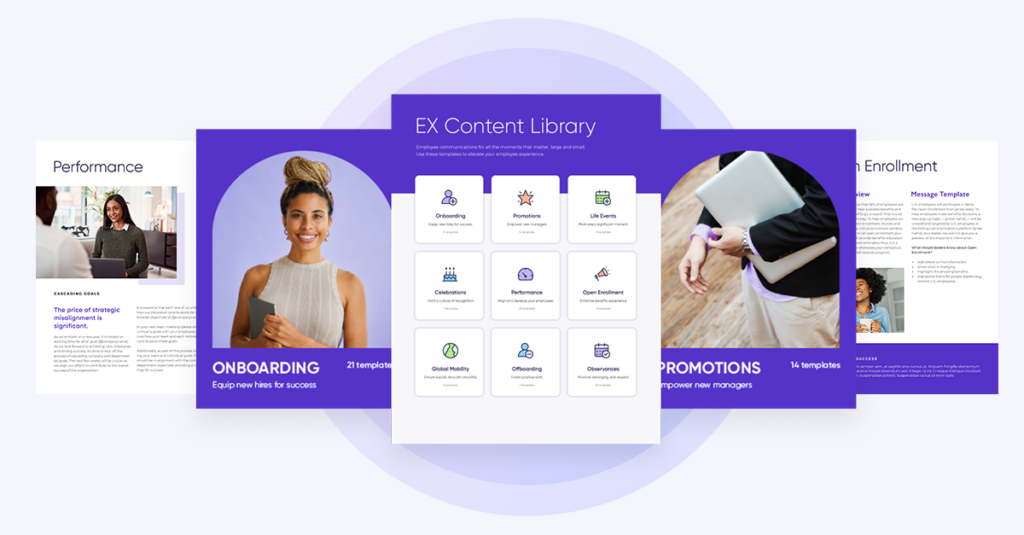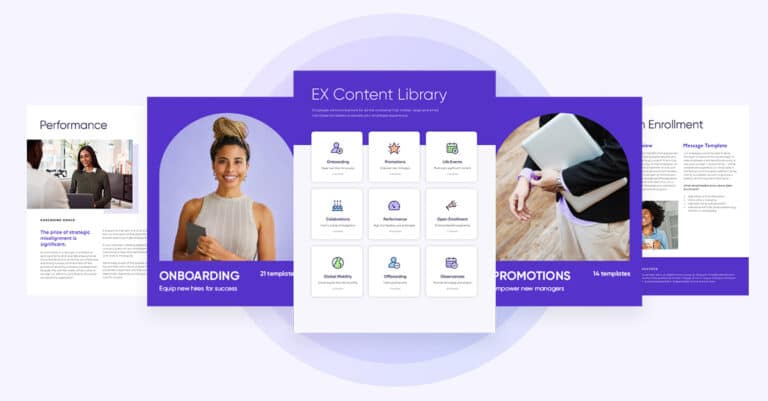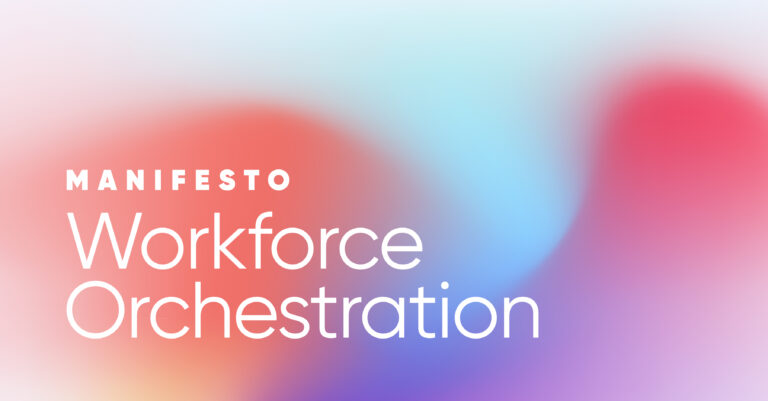We wanted to understand the current state of employee communications. What are today’s biggest challenges? How do budgets compare to just a few years ago? What are the most pressing concerns from CEOs?
Partnering with Branded Research Inc., an independent market research organization with an active proprietary global panel of over 2 million respondents, we surveyed 400+ U.S. internal communicators with 1000+ employees to better understand the challenges they face and what the state of workforce communications is today.
What is the current state of employee communications?
Firstup’s Internal Communicator Index reveals that organizations are spending more on employee engagement than they were two years ago, yet communicators still struggle to measure effectiveness and need better technology. Here are the three key findings:
- Companies are spending more on workforce communications than in previous years.
- Building employee trust is a top priority for the C-suite (and stopping fake news).
- Measuring the impact of workforce communications is still a challenge for communicators.
Organizations are spending more
Three-quarters (75%) of our survey respondents told us that they are spending more on employee engagement than they were two years ago. More than half (53%) of the communicators we surveyed stated that CEOs, executives, or boards expect communications teams to get employees aligned with organizational and strategic changes. Other top priorities include:
- 47% managing a crisis response
- 50% informing employees about available resources
- 52% increasing employee engagement
Building trust and stopping “fake news” are a priority
Today’s sociopolitical climate is affecting the workplace. Over half of communicators we surveyed (51%) said that the prevention of misinformation and rumors is their leadership’s top concern in communicating with employees. Also, communicators are competing for attention with always-on “digital watercoolers,” where news spreads quickly and makes it difficult for companies to tell a succinct story. And one bad actor or negative media incident could have a lasting impact on morale and employee retention.
Employees expect consistent and comprehensive communications from their organizations, and business leaders need to deliver this in order to keep employees motivated and feeling like meaningful contributors to the company’s strategic direction.
Measurement continues to be a major challenge
Communicators spend a lot of time trying to reach employees at the right time, with the right message, on the right channel. Many struggle to determine which communications are effective and which are not.
An astounding 85% of respondents say that measuring the positive impact of internal communications on employee engagement is a challenge. Another 64% say they don’t have a good way to know whether employees have seen or read their published content.
Internal communicators still lack the right technology
Internal communications still lags behind in tech resources. Communicators rely on spreadsheets for planning, and publish manually without a holistic view of what’s working and what’s not.
Much like the technology that has optimized how sales and marketing work, communicators need the same system of record that provides a unified platform with one integrated workflow to plan, create, publish, and measure everything from emails to intranet posts to digital signage.
Communicators waste time copying and pasting content to multiple locations and managing a variety of platforms.
What does the future look like for internal comms?
As investment in communications grows and becomes a bigger priority, it’s imperative that communicators are empowered with technology that helps them work more efficiently and have a greater, more measurable impact.
Only when companies start approaching employee communications in this way—with one place to create and publish content, reach any employee regardless of location in a personalized way, and measure the impact—will they truly be able to align their workforce.












